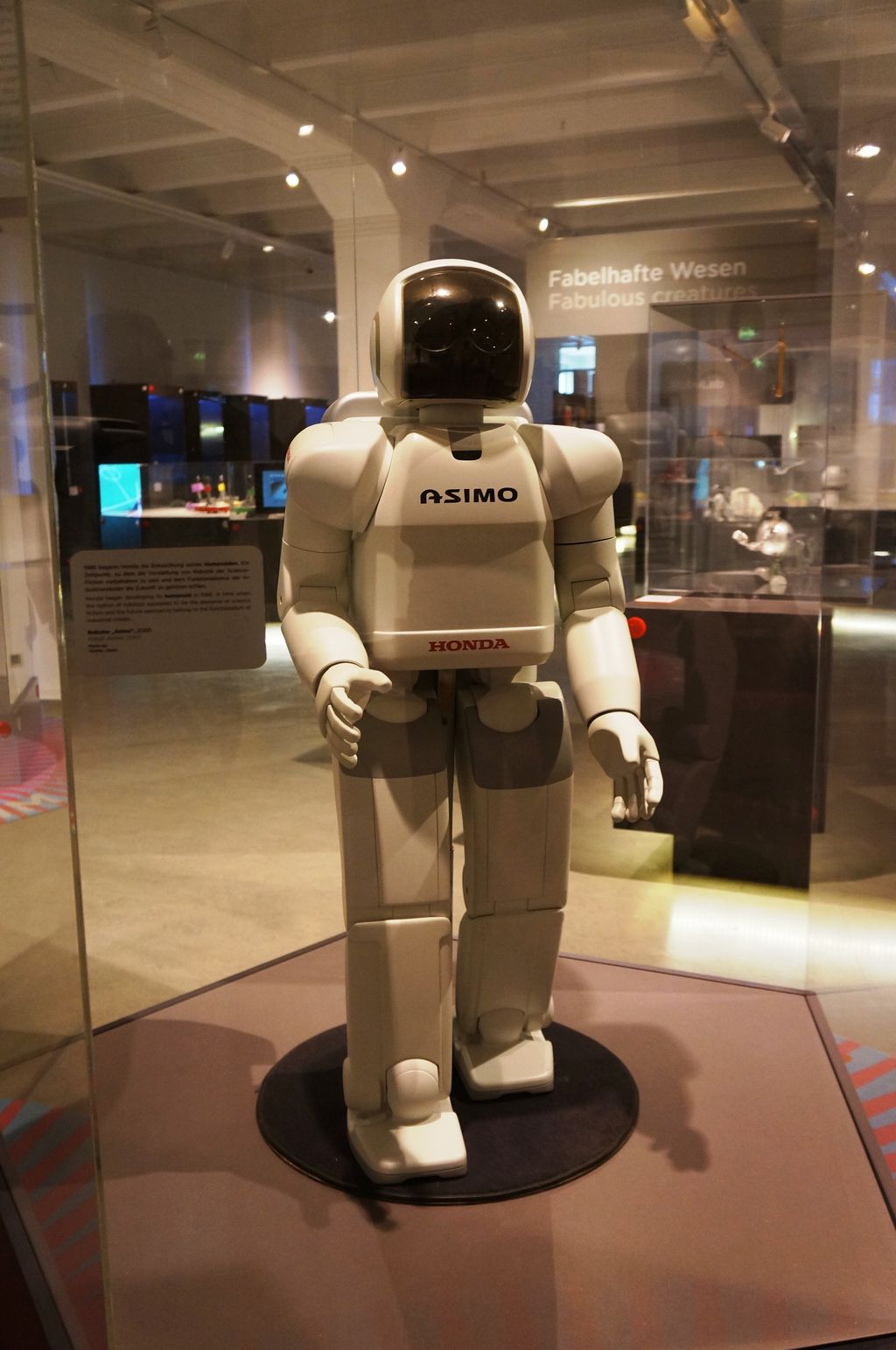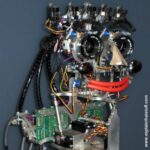The role of programmers will evolve due to advancements in AI, but complete replacement by AI is unlikely in the foreseeable future. AI tools can assist programmers in various tasks, enhancing productivity and efficiency. However, human programmers still have the advantage in problem-solving and creativity. Collaboration between AI and human programmers is crucial for optimal results. The future of programming with AI includes automation of repetitive tasks, increased productivity, and ethical considerations.
Key Takeaways
- The role of programmers will evolve due to advancements in AI, but complete replacement by AI is unlikely in the foreseeable future.
- AI tools can assist programmers in various tasks, enhancing productivity and efficiency.
- Human programmers still have the advantage in problem-solving and creativity.
- Collaboration between AI and human programmers is crucial for optimal results.
- The future of programming with AI includes automation of repetitive tasks, increased productivity, and ethical considerations.
The Role of AI in Programming

Understanding AI’s Impact on Programming
Artificial intelligence (AI) has had a significant impact on the field of programming. It has revolutionized the way programmers approach problem-solving, algorithm design, and software development. AI-powered tools and frameworks have automated various programming tasks, increasing productivity and efficiency. Programmers now have access to advanced machine learning and deep learning algorithms that can analyze large amounts of data and provide valuable insights. However, while AI has enhanced the capabilities of programmers, it is unlikely to completely replace them. The complex nature of programming, which requires creativity, critical thinking, and adaptability, makes human programmers indispensable.
AI Tools for Programmers
AI tools for programmers play a crucial role in enhancing productivity and efficiency in software development. These tools include auto-complete suggestions in integrated development environments (IDEs) and AI-generated code snippets for specific tasks. AI can also optimize code by identifying redundant or inefficient parts and suggesting improvements. Additionally, AI techniques can analyze code changes, test results, and production metrics to provide insights on performance, quality, and potential issues. This helps streamline the software development process and reduce the time and effort required for troubleshooting. Some popular AI tools used in software development include TensorFlow, PyTorch, and Keras.
Benefits of AI in Programming
AI in programming offers several benefits that enhance the efficiency and productivity of developers. One of the key advantages is the automation of repetitive tasks. AI-powered tools can automatically generate code snippets, perform code refactoring, and assist in bug detection and fixing. This automation saves developers time and allows them to focus on more complex and critical aspects of software development. Additionally, AI has improved the testing and quality assurance processes. AI-based testing tools can analyze code, identify potential vulnerabilities, and automatically generate test cases. This helps ensure the reliability and security of software applications.
Challenges and Limitations of AI in Programming
Although AI has made great strides in software engineering, it still has limitations that prevent it from fully replacing software engineers. One of the main challenges lies in addressing complex problem-solving that extends beyond predetermined patterns. While AI excels in processing large amounts of data and recognizing patterns, it often struggles with abstract or novel situations that demand human reasoning and creativity. Moreover, ethical considerations cannot be overlooked. AI systems, when not properly regulated and supervised, can exhibit unconscious biases and make decisions that may not align with human values and ethics.
AI vs Human Programmers

AI’s Ability to Write Code
AI has the ability to write code by leveraging generative AI models that are trained on large code repositories. These models learn patterns and structures in software development, allowing them to generate code snippets or even entire functions based on given requirements or prompts. This automation of code generation can significantly speed up developers’ workflow by automating repetitive or boilerplate code writing tasks. Additionally, generative AI can be used in bug detection and automated testing, where AI models analyze code to identify potential bugs and vulnerabilities, helping developers detect and resolve issues early on.
The Human Advantage in Programming
Programming has long been considered an arcane craft, requiring mastery of complex languages and paradigms. However, with the evolution of technology, programming has become more accessible to a broader spectrum of individuals. No longer is coding limited to geniuses with intricate knowledge of computer internals or operating systems. Today, anyone can adeptly construct software that not only functions seamlessly but also serves the needs of thousands of users.
One of the key factors contributing to this accessibility is the development of intelligent Integrated Development Environments (IDEs). These IDEs not only identify and correct errors but also generate concise code snippets, making the coding process more efficient and less prone to mistakes.
Moreover, the democratization of programming has been facilitated by the availability of a wide range of programming languages and paradigms. From the rudimentary machine languages of the past to the sophisticated languages like Fortran and C, programmers now have numerous options to choose from based on their specific needs and preferences.
In addition, the transformation of programming from an artisanal craft to a more industrialized practice, often referred to as ‘software engineering’, has further contributed to its accessibility. This shift has emphasized the importance of structured and efficient coding practices, making it easier for programmers to collaborate and work on complex projects.
While AI has made significant advancements in automating certain aspects of programming, the human advantage in programming cannot be undermined. Human programmers bring creativity, critical thinking, and problem-solving skills to the table, which are essential for developing innovative and unique solutions.
In conclusion, the democratization of programming and the development of intelligent tools have made coding more accessible to a wider audience. However, the human advantage in programming, including creativity and problem-solving abilities, remains crucial for pushing the boundaries of innovation in the field.
Collaboration between AI and Human Programmers
As AI systems become more integrated into development processes, the responsibilities and skillsets of software engineers are shifting. AI can assist software engineers in automating routine tasks, allowing them to focus more on creative problem-solving and high-level design aspects of software development. By offloading mundane tasks to AI, software engineers can effectively address complex challenges and build innovative solutions.
Collaboration between software engineers and AI systems is the key to unlocking the true potential of technology. While AI can offer valuable insights and assist in data analysis and pattern recognition, human software engineers are better equipped to understand complex contexts, make informed decisions, and adapt software systems accordingly.
Collaboration and communication are crucial in software engineering. Effective teamwork, communication, and understanding the needs of various stakeholders are essential for successful software development. AI can support software engineers in gathering requirements, understanding business needs, and creating software solutions that align with specific contexts. However, human software engineers bring unique skills in designing intuitive user interfaces, creating unique user experiences, and developing novel algorithms. While AI can generate solutions based on existing patterns and data, it currently lacks the ability to match human creativity and intuition.
Ethical considerations play a significant role in software engineering. Software engineers are responsible for ensuring that the software they develop adheres to ethical standards, respects privacy, and mitigates biases. These ethical considerations require human judgment and decision-making, as AI systems can inadvertently perpetuate biases or act in ways that are not aligned with human values.
In conclusion, collaboration between AI and human programmers is a powerful combination that leverages the strengths of both. AI can automate routine tasks, offer valuable insights, and assist in data analysis, while human programmers bring creativity, intuition, and ethical considerations to the table. Together, they can build innovative solutions and navigate the complexities of an AI-driven future.
The Future of Programming with AI

Automation of Repetitive Tasks
Generative AI and LLMs can automate repetitive tasks in knowledge work, allowing professionals to focus on more complex and creative aspects of their work. This can lead to increased productivity and time savings.
Enhanced Creativity: These AI models can generate new and original content, providing fresh ideas and perspectives. In creative fields such as graphic design or content creation, generative AI can serve as a source of inspiration and assist in generating innovative solutions.
Improved Decision-Making: LLMs can analyze large amounts of data quickly, extracting valuable insights and facilitating informed decision-making. This can be particularly useful in industries where data-driven decisions are crucial, such as finance or marketing.
Efficient Resource Allocation: AI algorithms can optimize resource allocation by analyzing patterns and trends. For example, in supply chain management, AI can predict demand, optimize inventory levels, and streamline logistics, leading to cost savings and improved efficiency.
It is important to note that while AI can automate repetitive tasks, human judgment and expertise are still essential. AI systems are designed to assist and enhance human capabilities, not replace them. Collaboration between AI and human professionals is key to leveraging the full potential of AI in programming and other knowledge-intensive fields.
Enhancing Programmer Productivity
The advancements in AI technology have greatly enhanced programmer productivity. Intelligent IDEs and code generation tools have revolutionized the development process, allowing programmers to work more efficiently and effectively. These tools can identify and correct errors, generate concise code snippets, and even refactor extensive routines into manageable fragments. They streamline the development experience and empower developers to execute complex tasks with ease. With the help of AI, programmers can now accomplish in minutes what would have taken hours or even days to complete.
Ethical Considerations in AI Programming
Ethical considerations cannot be overlooked in AI programming. AI systems, when not properly regulated and supervised, can exhibit unconscious biases resulting from biased training data. Additionally, decisions involving ethical dilemmas and value judgments require human intervention and accountability, as AI lacks human empathy and the ability to fully understand context. Software engineers play a crucial role in ensuring ethical practices are followed throughout the software development process. They should strive to develop AI systems that adhere to ethical guidelines and mitigate potential risks.
Conclusion
In conclusion, while there is ongoing speculation about whether AI will replace software developers, it is unlikely to happen in the foreseeable future. The role of programmers will evolve and adapt to advancements in AI technology, but they will still play a crucial role in complex problem-solving, algorithm design, and software development. AI may enhance their work, but it is not expected to completely replace them. As the field of AI continues to advance, software engineers will need to continuously upgrade their skills and stay informed about AI advancements to remain at the forefront of technological innovation.
Frequently Asked Questions
Will AI replace software developers?
While AI has the potential to automate certain tasks in software development, it is unlikely that AI will completely replace software developers in the foreseeable future. The role of software developers will evolve due to advancements in AI, and collaboration between AI and human programmers will become more common.
What is the role of AI in programming?
AI plays a significant role in programming by providing tools and technologies that assist programmers in various tasks. AI can help automate repetitive tasks, enhance programmer productivity, and analyze large amounts of data to gain insights.
What are the benefits of AI in programming?
AI in programming offers several benefits, including improved efficiency and productivity, faster development cycles, and the ability to handle complex tasks and analyze large datasets. AI can also assist in error detection and code optimization.
What are the challenges and limitations of AI in programming?
Despite its benefits, AI in programming also faces challenges and limitations. Some challenges include the need for extensive training data, the potential for biased or incorrect outputs, and the ethical considerations surrounding AI’s decision-making capabilities.
Can AI write code?
AI has the ability to generate code, but it is currently limited to specific domains and tasks. AI can assist in code generation for certain repetitive or rule-based tasks, but complex programming and creative problem-solving still require human intervention.
How will AI impact the future of programming?
AI is expected to have a significant impact on the future of programming. It will automate repetitive tasks, enhance programmer productivity, and enable the development of more advanced and intelligent software systems. However, ethical considerations and the need for human intervention will remain important factors.




